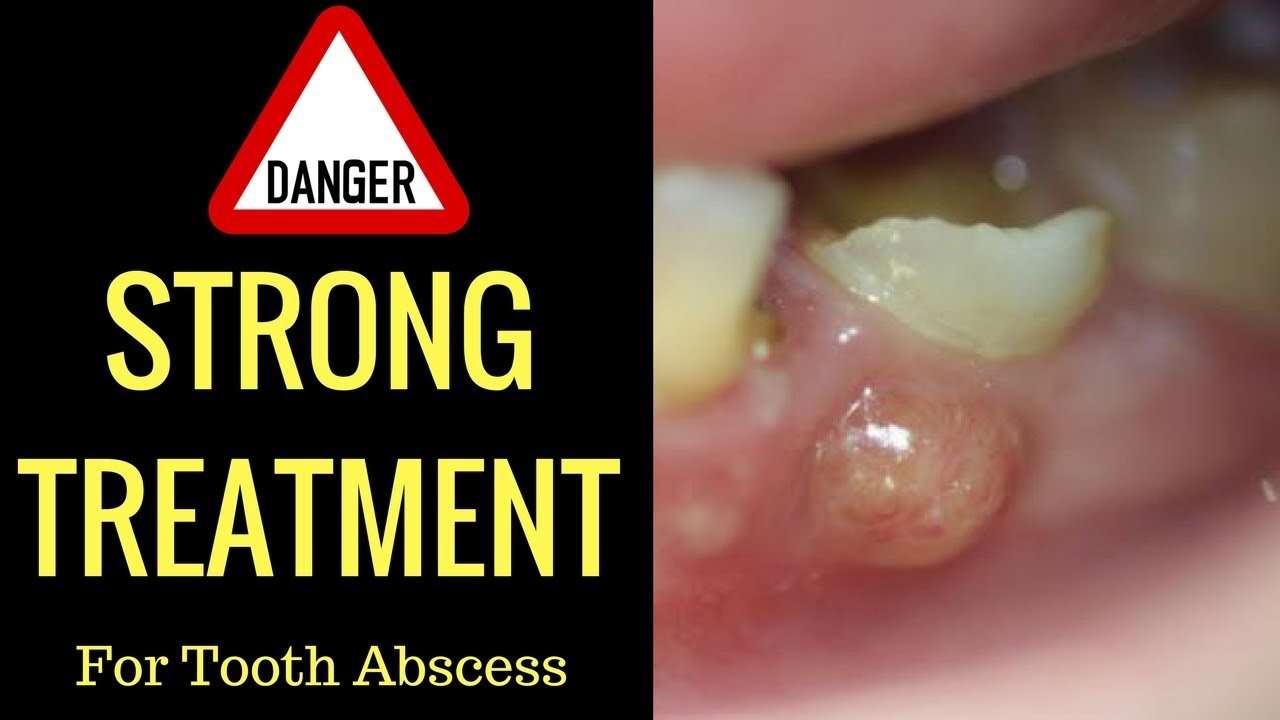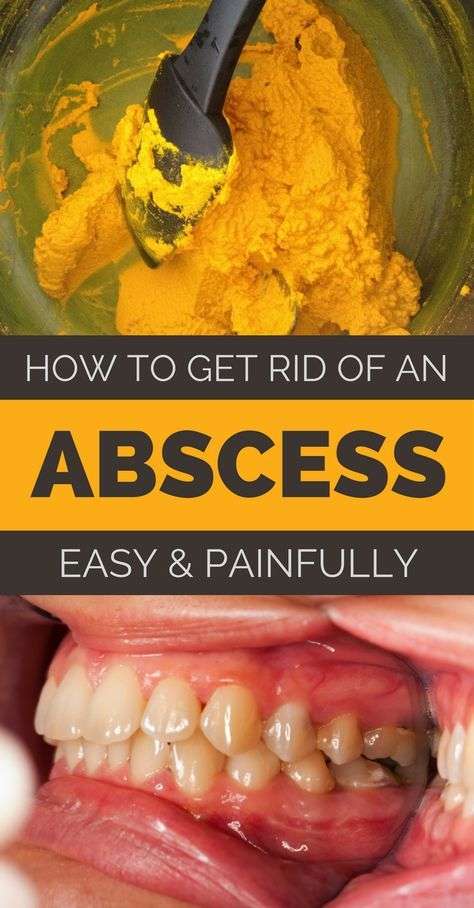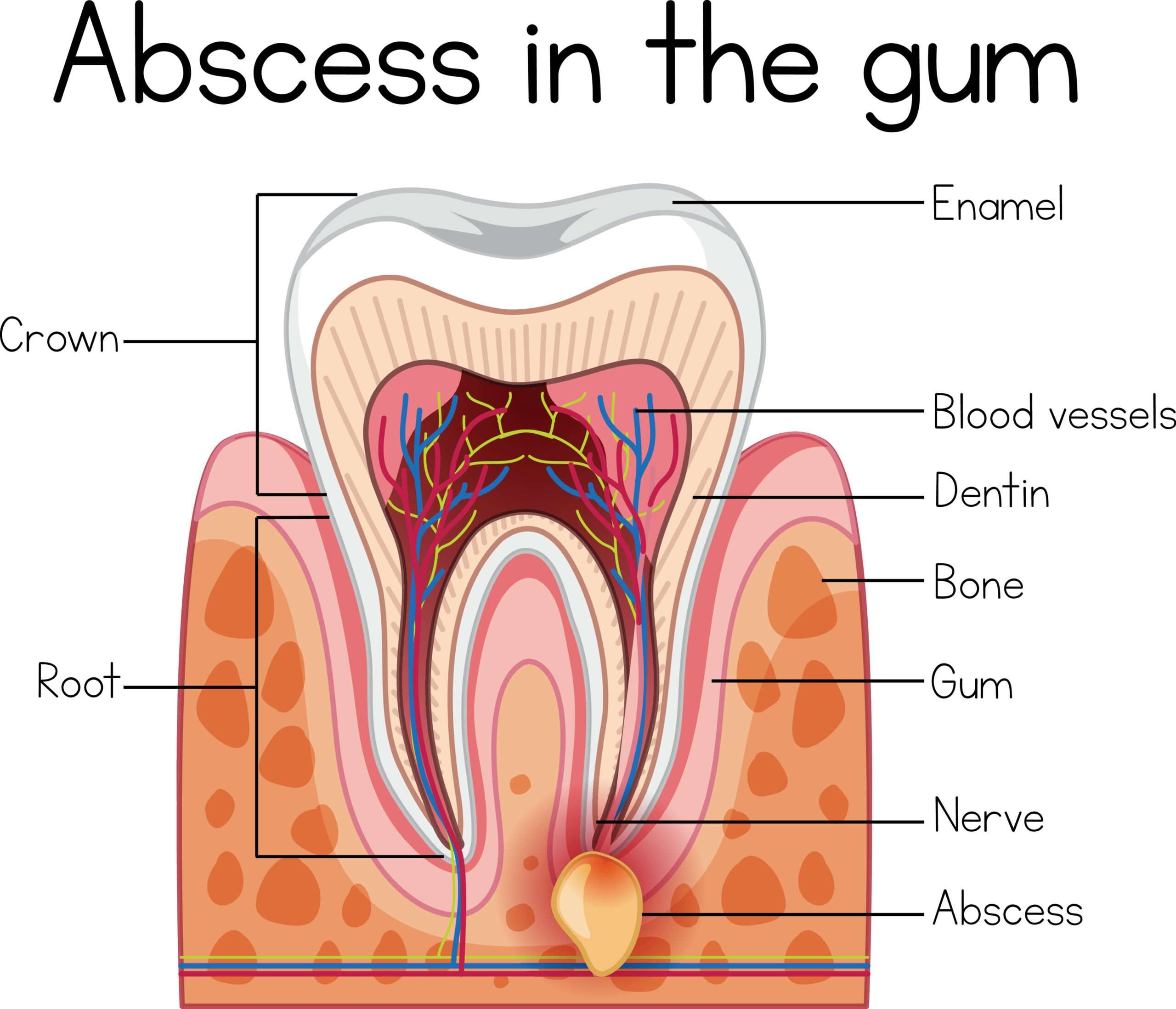Q: What Are The Side Effects Associated With Taking Antibiotics For Tooth Infection
A: Many patients take antibiotics with no negative side effects, but there are some side effects commonly associated with antibiotics, like diarrhea, feeling nauseous or dizzy, and fungal infections like yeast infections. Some side effects that are much less common may include blood clotting, blood disorders, kidney stones, sensitivity to sunlight, and deafness. The potential side effects vary by medication.
What Are The Best Antibiotics For A Tooth Infection
A tooth infection can be caused by any number of different types of bacteria. The best antibiotic will be tailored for the type of bacteria causing the infection. Side effects, however, are an important consideration when a dentist or healthcare provider prescribes an antibiotic. One in 15 people are allergic to one or more types of antibiotics, and allergic reactions to antibiotics could be life-threatening.
Q: I Have Been Taking My Antibiotics For 5 Of The Prescribed 7 Days And I Feel Much Better Should I Stop Taking Them
A: It is common, and usually expected, to be free of symptoms from your tooth infection before your prescription runs out. However, you should always complete every round of antibiotics in full. Its likely that even though you arent experiencing any symptoms, there is still some lingering bacteria that will begin to grow once the medication has ended. Even if there isnt, think of the last few days as a preventative measure. You want to take your antibiotics correctly because it is best if they work the first time. The bacteria, if not depleted, will eventually begin to grow resistant to the antibiotic, so it may become less effective over time if the problem is not treated.
Read Also: Natural Medicine For Kidney Infection
Q: When Should I Be Worried About Antibiotics
A: Typically, unless you are allergic, you should have no problem taking the antibiotics your dentist prescribes. However, if you suffer from liver or kidney disorders or are pregnant or breastfeeding, you should inform your dentist. Some antibiotics may affect you differently or be dangerous for your baby, and he or she may choose to go another route.
Antibiotics are a common treatment for tooth infection and are sometimes even given as a preventative measure before oral surgery. If you have other questions about your tooth infection or the antibiotics you were prescribed, you should contact your oral healthcare provider.
Relate Posts to Read:
Q: Will Antibiotics Cure My Tooth Infection

A: Antibiotics will begin to deplete the bacteria causing the infection, and often, with the help of your bodys natural antibodies, is able to cure the infection. However, if you have an abscess or other serious dental infection associated with your tooth infection, you may need further dental work to prevent future infections. Because tooth infections are most often associated with an oral abscess, you may need a dental procedure, like a root canal, to fix the problem.
You May Like: Signs You Have An Infected Tooth
How Long Do I Need To Take Antibiotics For
No matter which kind of antibiotic suits you and your tooth infection best, its crucial to complete the full round of treatment.Sometimes, your symptoms may improve after a day or two. However, if the dentist or pharmacist recommends that you take it for an entire week, dont stop.
Taking antibiotics even though your symptoms disappeared can help ensure that the infection is truly healed and wont return.
The only reason you should stop taking a form of prescribed antibiotics is if youre having an allergic reaction to them. Even then, you should consult your dentist before you make a switch.
Dental Abscess Treatment Options
Most dental abscesses will be treated immediately after diagnosis. An uncomplicated abscess will usually only require drainage to provide relief from the pain. Complicated abscesses may require more complex procedures and medications to control the underlying infection. If the infection spreads to the sinuses or neck, a surgeon may need to treat the condition.
Recommended Reading: Will Amoxicillin Cure A Sinus Infection
How Long Does It Take To Work
You have tooth infections. Youre in pain and you have swelling. You were responsible and went to your dentist and they recommended antibiotics. Now youre asking yourself: How long does it take for antibiotics to reduce swelling from a tooth infection? How long does it take for antibiotics to work?
That depends on a few factors, like the severity of the infection and how effective they are against that type of bacteria. It is important to take your medication according to your dentist recommendations. Do not take more in order to speed up the process. That will not help and might even make things worse. It might take a few days for you to start feeling better, so be patient. It is also important to take the whole round of antibiotics your dentist recommended. Dont stop before consulting with your dental professional just because you feel better or your infection might come back with a vengeance.
Which Is The Best Antibiotic For Tooth Infections
All antibiotics are not created equal thus, your dentist will be at liberty to prescribe one that will destroy the bacteria causing the tooth infection.
But what antibiotics are used for tooth infections?
The kind of antibiotic you require will depend on the type of bacterium causing the tooth infection. Your dentist will choose the most effective medicine that will clear your infection within the shortest time possible.
There are several classes of antibiotics that your dentist might prescribe, including:
Penicillin Antibiotics for Tooth InfectionsPenicillin-type antibiotics are most used for tooth infections. They include amoxicillin and penicillin.
However, most people are allergic to these drugs. Thus you need to first discuss with your dentist about any allergic reactions you had in your previous medications. This will help your dentist to choose a different antibiotic that will work best for you.
MetronidazoleMetronidazole is typically used to treat tooth infections and easing the pain that comes with it. However, you should avoid all alcohol-containing products when using this antibiotic.
Recommended Reading: How To Get Rid Of Tooth Infection At Home
Some Things To Take Into The Consideration Are:
*What are the signs and symptoms?
*Is it a diagnoses that a dentist sees regularly, as some conditions that he/she sees do not need antibiotics, and then some others do need to be treated under the antibiotic coverage.
The dentist might simply drain the infected area, remove the infected area of the tooth, or simply fix it by the root canal treatment. Dentists generally avoid recommending antibiotics, unless the spreading nature of the infection is severe, or if the person suffering has a weakened immune system.
Some examples explaining the need for antibiotics in tooth infections:
In case of spontaneous pain, the diagnosis is often related to the pulpal inflammation. This pulpal inflammation does not necessarily have bacteria. Hence, antibiotics are of no use in such cases.
In the other cases, where the pain is of a chronic type and the sensitivity test comes back negative, there is a possibility that the pulp is dead, and this area of necrosis has become home to some bacteria. Here, even though the bacteria is present causing the infection in the pulp area, the source of infection in most cases is the tooth itself. As the pulp is dead, there is no blood supply, hence the infection is not systemic. In such cases too, the antibiotics are of no use, as the drug cant reach systemically to the area of infection where there is no blood supply.
So then question arises: When should someone use an antibiotic?
Antibiotic Resistance Is One Of The Biggest Threats Facing The World Today Antibiotics Work Less Effectively The More Theyre Taken
Youve probably seen in the news over the past few months that, as a nation, we are becoming more resilient towards antibiotics. Our bodies are basically getting used to us taking them, and therefore they arent as effective in treating what theyre supposed to.
Now with teeth, its an entirely different reason as to why were reluctant to hand them over. Obviously, we dont want you to become unresponsive to any antibiotics we give you, but we usually dont like to give them for one reason: Antibiotics dont cure toothache.
Read Also: Metronidazole For Tooth Infection Dosage
How Are Antibiotics Administered
Antibiotics are often taken orally in pill form. There are also topical antibiotics that can be administered directly to the site of infection, as well as antibiotic oral rinses.
Antibiotics must be administered with care so as to prevent the bacteria from becoming resistant. It is important to ensure a bacterial infection is present, or to determine that there is significant risk of infection, before prescribing an antibiotic.
At Advanced Cosmetic & Family Dentistry, we take great care when determining which treatment will be best for each individual patient and whether antibiotics will be beneficial.
What Is A Dental Abscess And Which Antibiotics Treat Tooth Abscess

A tooth abscess is a term used to refer to the accumulation of pus in your mouth, generally caused by a bacterial infection.
This type of infection cannot go away on its own unless it is well treated using antibiotics recommended by a qualified dentist.
There are two types of tooth abscess, namely Periapical abscess and Periodontal abscess .
The first sign of a tooth abscess is a severe and sharp throbbing pain.
But which antibiotics for tooth abscess are effective?
Recommended antibiotics are generally used to treat tooth abscess. However, unlike other tooth infections, antibiotics on their own cannot treat an abscess.
Generally, an abscess must be opened and drained by a dentist for it to improve and heal. Antibiotics are only used to reduce the symptoms of tooth abscess.
Don’t Miss: Are There Different Types Of Uti Infections
Do I Need Antibiotics For A Tooth Infection
If the dentist recommends antibiotics for your infection, its best to take them. They wouldnt prescribe them if it wasnt absolutely necessary.
However, before you take your medicine, you should get to know the different types of antibiotics dentists usually prescribe. This will help you learn what you can expect from them.
How Are Tooth Infections Treated
To treat a tooth infection, a dentist will typically do one of the following: Open up and drain the abscess, perform a root canal, or pull the affected tooth. A doctor can also prescribe antibiotics to kill the infection before the tooth is dealt with by the dentist, to prevent the bacteria from spreading.
Don’t Miss: Sinus Infection Post Nasal Drip
How Long Does It Take For An Abscess To Develop
Abscesses due to tooth decay can take several months to develop. This is because the can take a while to reach and damage the pulp at the center of a tooth.
Meanwhile, injury or trauma to a tooth may allow bacteria to enter the tooth more quickly. This can happen due to injuries like a cracked or chipped tooth.
How Much Antibiotic Should You Take And Duration To Treat Tooth Infections
Although the symptoms of your tooth infection may start to clear after taking a few doses of antibiotics, dentists recommended that you take a full dose to prevent the infection from getting d stronger or coming back in future.
Depending on the class of antibiotics prescribed, you need to take a dose of up to four times each day. If your tooth infection needs antibiotics, you need to take them for one week unless advised otherwise by your dentist.
But when you use antibiotics frequently or incorrectly, the infection-causing bacteria develops some resistance, thus rendering them less resistant.
Final VerdictIf you are experiencing signs of a tooth infection or abscess, such as throbbing pain, sensitivity to pressure or temperature and swelling schedule an appointment with your dentist as soon as possible or if you are looking for a dentist in Murfreesboro, TN then call William Fitzgerald DDS at:
If your dentist recommends some antibiotics, follow the instructions keenly and complete the full dose. Even if your infection appears mild, it can become severe if you leave it untreated.
Read Also: Yeast Infection Treatment While Breastfeeding
How Dental Insurance Can Help
Dental emergencies happen. Even if you are practicing good dental hygiene and you take care of your teeth, you can still end up with an infected tooth that needs to be dealt with right away. Dental insurance can help cover the costs of things like X-rays, exams, and other treatments, as well as more expensive care like root canals.
This is not dental care advice and should not be substituted for regular consultation with your dentist. If you have any concerns about your dental health, please contact your dentist’s office.
So What Can I Do To Prevent The Need For Antibiotics
If you imagine, youve got a tooth that has a hole in it. Its slowly being eaten away by some decay, but because its not giving you any pain, youve left it and left it. Eventually, the decay will reach the nerve of your tooth, which supplies your tooth with blood, causes sensitivity, and is what we remove when we do a root canal. Now, imagine that nerve becoming inflamed because of the decay thats now reached it, and because it tries to get you out of pain itself, an abscess forms at the base of your tooth root. Now, this abscess is getting bigger and bigger, its starting to hurt, and its letting you know its there because of the great, big facial swelling thats appeared around your jaw.
Read Also: How To Tell Tooth Infection
What Relieves Tooth Abscess Pain
NSAIDs such as ibuprofen, naproxen, or aspirin provide the most effective pain relief for a tooth abscess. They will both relieve the pain and reduce the swelling caused by the infection. Anesthetics are popularly used, but products with benzocaine should be avoided. Benzocaine can cause rare but serious side effects. Products with counter-irritants like menthol have only a limited effect. In most peoples experience, natural or medical topical anesthetics do not relieve pain as well as NSAIDs. Keep in mind that pain relievers only lessen the discomfort of the infection, so it is important to consult with a healthcare professional to remedy it.
Can You Drink Artificial Vanilla Extract

In addition, every extract included in artificial beverages must have a minimum alcohol content of 35 percent. In other words, for the most part, vanilla extract should be enough to make you drunk in approximately four to five ounces. It is particularly important if the vanilla extract you purchase is real rather than imitation.
Don’t Miss: Will Bactrim Treat Tooth Infection
How To Fix A Tooth Abscess
Unfortunately, there is no quick fix for a tooth abscess. Because the source of the infections are either in or around the teeth, there is nothing you can do to actually cure the infection. Only dental treatment is able to remove the original source of bacteria and prevent the infection from returning in full force.
When You Dont Like The Dentist
Youre not alone in being uncomfortable with the dentist. Rather than avoid the dentist, which can severely sabotage your oral health, I suggest you try a dentist who offers dental sedation. This allows you to get a anxiety-free/pain-free experience in the dental chair. In fact, with oral conscious sedation, most patients just sleep through their appointment. It has changed many lives.
Be aware, while pain in a tooth often means a tooth infection, it can also mean you have a cracked tooth that needs to be crowned. The point is get to a dentist find out the real problem.
This blog is brought to you by Hoffman Estates Dentist Dr. William Becker.
Also Check: Ear Infection Treatment Adults Over The Counter
I Have A Swelling What Should I Do
So you phone us up, and we get you an appointment. We will assess the tooth and see why its causing so much pain. If you are in absolute agony with a visible facial swelling, then theres no way were getting anywhere near that tooth, so we will have to prescribe antibiotics. These will help get rid of the swelling and infection thats around your tooth, but it will not fix the hole in your tooth. That will remain until we do a root canal filling, a filling, or extract the tooth. That facial swelling may well return, as the bacteria can still get to the pulp of your tooth and can still cause a reaction.
If the pain is bearable, and you dont have facial swelling, we will most likely send you away to manage it with painkillers until the pain subsides and we can get near you with some local anaesthetic.
The problem with swellings is that they tend to stop our local anaesthetic from working, so even if we did try to numb you up, it would not make your tooth numb enough to actually work on. If we can work on it, then we will, without the need for antibiotics.
What Should Be The Effective Dose Of The Antibiotics
Although it is not very clear, according to the literature in most cases, 2-3 days of medication is adequate. However, when the treatment is not done properly, the antibiotic coverage may be needed for up to 7 days.
According to the International Dental Journal study notes, most acute infections resolve in 3-7 days.
Always take the entire dosage regimen of antibiotics prescribed by your dentist . This is mainly because if you dont take the entire course, some bacteria may survive and can result in the re-infection. This reoccurring infection becomes harder to treat at the later stage.
Also Check: Can An Infection Cause Erectile Dysfunction